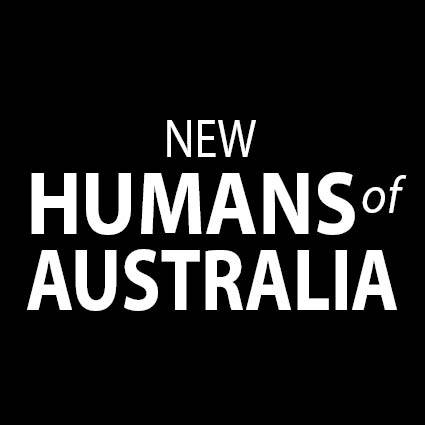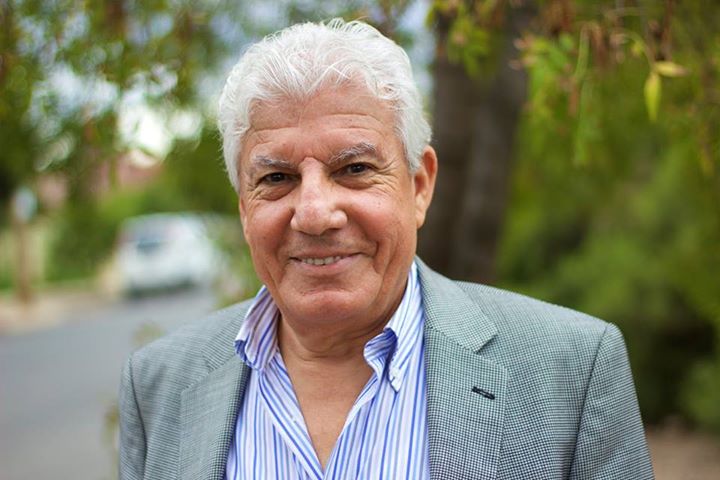(Part 2) We came to Sydney in 1983. We loved the city, but it was very difficult for us, as we only spoke a very little English, and we didn’t know anyone. We didn’t know what to do, how to find a house, anything. On our second day, we saw a man with an Arabic newspaper, and said, ‘Sorry, we don’t know anyone, we want to rent an apartment, where can we go?’ He said, ‘Look, this area is very expensive. You need to go to an area called Marrickville.’ Then, when we got to Marrickville, I saw a man who looked Egyptian working in a photo shop, and when I spoke to him, it turned out he was an Egyptian born in Palestine! He had been in Australia for a long time, and he and his wife explained everything to us, and even called a real estate agent who spoke Arabic, and she found us an apartment. This couple became our good friends and gave us a lot of support.
I couldn’t find work as an engineer at that time, so I had to think of other ideas. In France, my wife had done a course in French pastry, and I said to her, ‘How about if we open a French pastry shop? I will make all the equipment, and you can make the pastries.’ After a couple of weeks, she was convinced. We leased a shop in Ashfield, and I read all her books about French pastry, to learn about the equipment specifications.
Then, one week after leasing the shop, she fell pregnant, which we hadn’t been able to do in the past. There was nothing wrong with her or with me, but we couldn’t conceive. And suddenly she was pregnant, and her pregnancy was one of the worst. She had 9 months of hell. She said, ‘How will we manage?’ I said, ‘Don’t worry, we will manage.’ One month later, I had painted, I had bought the coffee machine, and we were ready to open. My wife now was sick. I started testing everything, and whatever I made I gave to our neighbours. As a result, on the first day we opened, there was a huge queue, and by 12 o’clock we had sold out! Nobody was doing anything similar, except in Bondi. And soon, even people from Bondi were coming to have our pastry. But how to manage? I was working from 10 o’clock at night until 5 o’clock the next day. Then I would sleep for a few hours and go back to work. Six months later, when we were about to have our child, my wife was completely sick, and I was completely tired. And one day, somebody stepped in and said, ‘Do you want to sell the business.’ And without thinking, I said, ‘Yes.’ Because I felt the pain, despite the success.
So, my challenge was what to do next to provide for my family. My Dad said, ‘Every industry has a hole – you start thinking how you going to fill that hole and you start a business’. I thought about how in my home there was all this noise and nothing but a piece of glass protecting me, and I started to think about window roller shutters, which were still a new industry in Australia. Then, I contacted a German company who agreed to supply me with the products. But I knew Sydney would be too expensive to live in, so we put the family in a van with all our furniture, and drove to Adelaide.
I started my roller shutter venture, CW products, in 1984. For 4 years, I had to work 5 jobs in order to support my business and my family. It wasn’t easy. But now we are the leader of this industry in Australia. We have a 10 000 square metre factory and employ 35 people.
I’m 70 now, but I don’t want to retire. I’m very grateful to the Australian people, and this is why I want to keep growing the business – not for more money, but really to create more jobs. Every time I employ another person, I feel happy, because another family is benefiting.
We are very proud to be contributing to Australian society in this way.
Ibrahim
Palestine
Arrived 1983
Thank you so much to everyone who has signed up as a patron – I am now at 70% of my goal! Can we get there today? If you would like to join the wonderful supporters of the New Humans of Australia project, please visit: https://www.patreon.com/nicolagray?ty=h
Missed part 1? You can read it here: http://bit.ly/1UgAvtl


So good. Congrats to you and your family for all your success. I am happy Australia has been a happy home for you
Ibrahim, thanks for sharing your story. You and your family are proud to be contributing to Australian Society – I’m proud you’ve chosen Australia as your home.
So happy you live in Australia. You’ve blessed so many people’s lives by coming here. Wish I could have tasted your pastries!!! ????
Wow Ibrahim! Such tenacity.
Lots of people could learn from your wonderful example. How proud your family must be!
Wow! What a great story. This is exactly what our Australian identity was built on – ideologies of mateship, egalitarianism and having a go. My mother always told us to give to this country, and never take from it. This is exactly what you have done. Australia is proud to have you, Ibrahim.
An incredible story! Thank you for sharing it! Australia is a richer place because of people like yourself..
‘Every industry has a hole – you start thinking how you going to fill that hole and you start a business’. wise words from your father… You are an amazing human Ibrahim!!! Good on you!
I wish thousands more Australians could see and read your comments. Maybe then there would be a
little more tolerance and acceptance of the benefits of immigration, rather than the vitriol which is so commonplace now.
You sir are an inspiration, whatever hardships life threw at you, not only did you never give up, you succeeded. We are glad you made Australia home.
You are an asset & a wonderful Australian & I for one am glad to share this great country with you. Blessings XXX
How inspiring and how lucky Australia is to have you both
This man is an absolute inspiration. Working five jobs to support the business – can you relate Andrew Fearman? What a champion!
I love your stories. I migrated to Australia 8 years ago and count myself very lucky as my journey was a much easier one than the ones of the amazing and courageous people you meet with. NHOA is very inspiring and should be on every politician table before they make immigration laws. Well done Ibrahim.
I am a customer of Ibrahim and CW Products. What a great pleasure to see his face pop up today. Blessings to you and your family for creating such a great business and giving back to our great country. ????
Wonderful story and we wish you peace health and happiness.
Thanking you for sharing what is a Wonderful and Inspiring story Ibrahim. Whilst your story is mired in tragedy and heartbreak, your story is also a testament to the richness of soul that folk such as yourself bring to weave into the fabric that IS Australia. Our thanks to you and your family for making Australia your home mate.
Part 2 as interesting as part 1. Sir, u should write a book.
I read your story and I was so touched by it that it brought tears to my eyes, I would like to wish you all the very best in the next chapter of your life, I have no doubt that what ever you touch will turn to gold, heaps of blessings????
So inspiring to read your story. I appreciate everything you have done, and continue to do, for your family, the community & Australia. I wish I had your energy!
I would like to thank each and every one of you, who commented on my story,
I have been deeply touched by your kindness and compassion, and very special thanks to Nicola( New Humans of Australia) for giving me the opportunity to share my story with you.
Although l am not sure what you had to go thru totally, l congratulate you on your persistence & hope you achieve all yoy hope for.WELL DONE.
Great story Ibrahim Elassaad you’re a tough bugger. My good mate Theo Van Dartel and family Emigrated from Holland around 65 years ago. He’s 70 now. They settled in Carcor near Bathurst. His dad was a pastry cook and opened a shop there. The kids would be up out of bed at 3 am to help out. He has told me stories of difficulty settling in, Initially not being accepted by the locals and terrible bullying particularly by the nuns at their school. You should be very proud of your achievments and your humble nature is admirable.
Wonderful story.
We are all immigrants in Australia.
My great great greats were from England Scotland Germany and what was known as Prussia.
First in the family were the Hales who came out in 1874 to SA and WA.
What a wonderful story, people like you make Australia great, thanks for sharing it.
Ibrahim I think you have now to write a book; you have the story and it would be so helpful to inspire everyone! Maybe a ghost writer could work with you to do this! Your story of courage,perseverance and hard work makes me humble and proud.May you live a long and blessed life now you have already endured hardship!Congratulations on your achievements. Thanks for sharing!